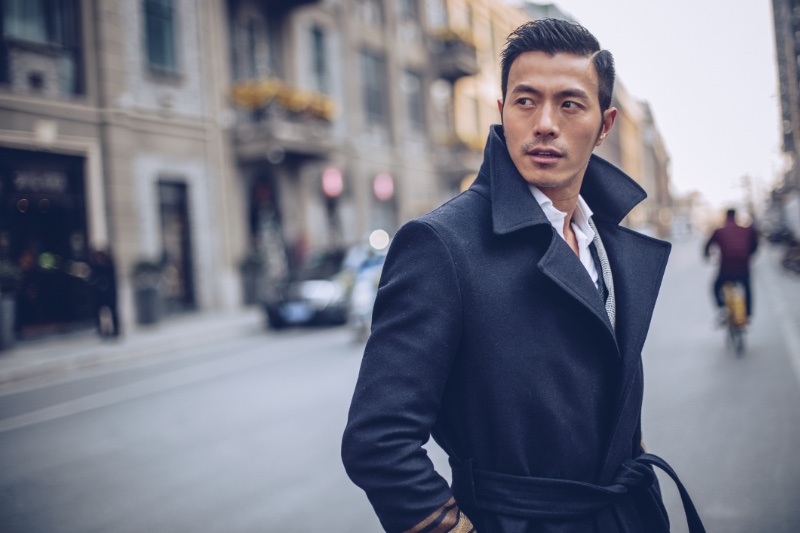
Fashion is a language that communicates who we are, what we believe in, and how we want to be perceived. Knowing how to dress better is a skill that can be learned and refined over time. It doesn’t require an extravagant budget or an extensive wardrobe.
How to Dress Better for Men
Dressing better is about making smart choices, mastering the essentials, and incorporating your personal style. A wardrobe built around timeless pieces, thoughtful layering, and a defined approach to fit and detail can easily elevate your look.
Embracing Your Body Type
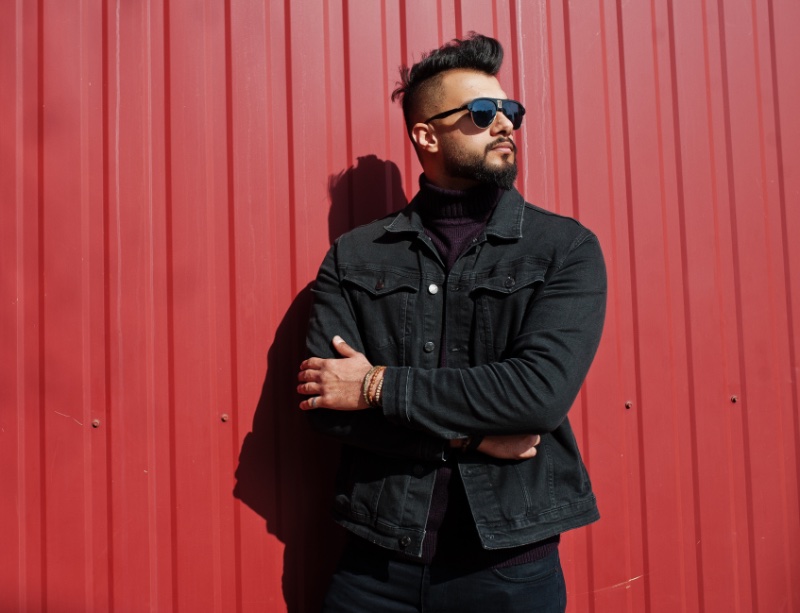
Every man can look sharp and stylish regardless of shape or size. The key lies in understanding your body type and how to dress to accentuate your best features.
Knowing Your Body Type
The first step towards dressing well is recognizing your body type. Understanding your body shape will help you choose clothes that complement and flatter your physique, whether you’re tall, short, slim, or broad. This self-awareness can guide your clothing choices, ensuring you pick items that enhance your natural silhouette.
Prioritizing the Right Fit
Whatever your body type, the right fit can significantly enhance your appearance. Clothes should not be too tight or loose; they should flatter your body. Well-fitting clothes can highlight your best features while minimizing any areas of concern. Investing time in understanding what fits you best can dramatically improve the overall effect of your attire.
Accentuating Your Best Features
Everyone has unique features that can be highlighted and enhanced with the right clothing choices. Got broad shoulders? A structured blazer can enhance them. Have long legs? Slim-fit trousers can show them off.
Identifying your best features and understanding how to accentuate them with your clothing choices can significantly affect how you present yourself. This can boost your style and increase your confidence.
The Underwear Equation
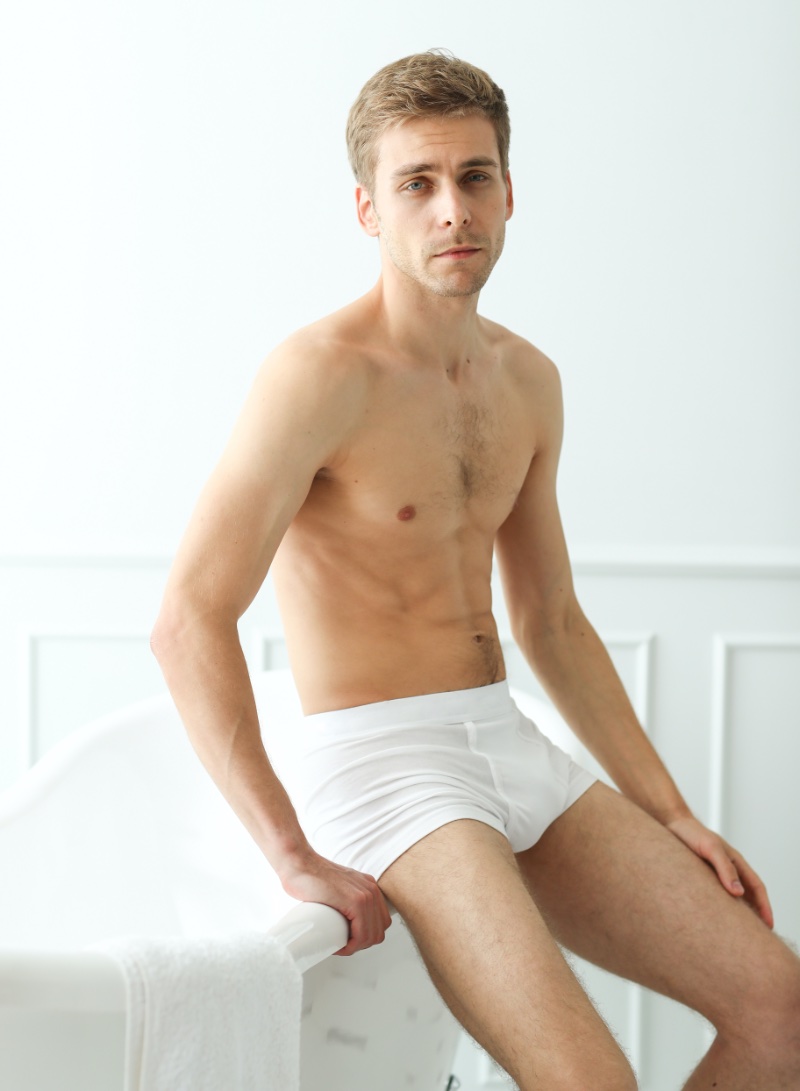
The foundation of any good outfit often starts with the basics—your underwear. Making the right choice can significantly impact your comfort throughout the day and the look of your attire.
Prioritizing Comfort & Fit
Uncomfortable underwear can throw off your whole day and ruin the look of your clothes. So, prioritize finding underwear that fits well without being too tight. Opt for breathable fabrics like cotton, which can enhance your comfort significantly.
Choosing the Right Type
The type of underwear you choose—whether briefs, boxers, boxer briefs, or trunks—should be determined by your comfort and your outfit’s requirements. For example, if you’re wearing fitted trousers, a sleek pair of boxer briefs or trunks may work best, providing a seamless appearance.
Importance of Quality
When it comes to underwear, quality should never be compromised. Don’t skimp on the quality of your underwear. It’s an investment in your comfort and well-being. High-quality underwear lasts longer and maintains its shape and comfort level, making it a worthy addition to your wardrobe.
Discovering Your Personal Style
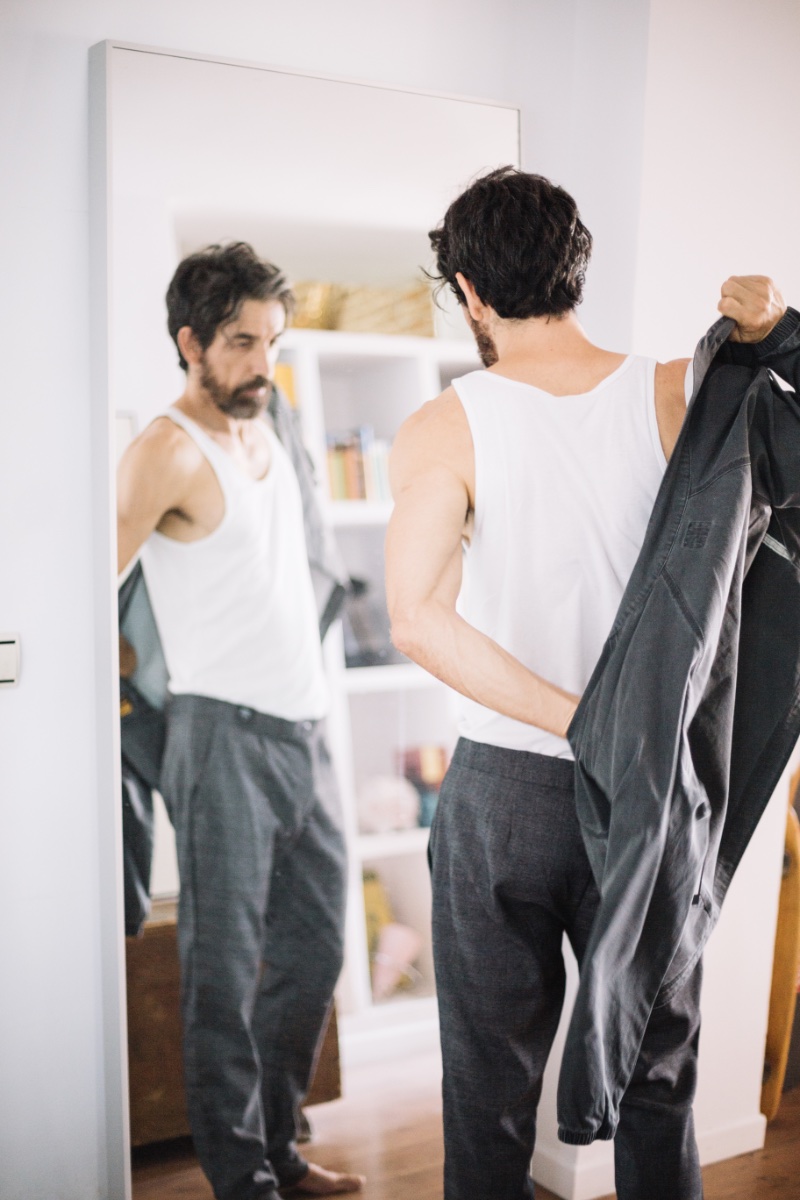
The first step towards dressing well is to identify your personal style. Your style reflects your personality, preferences, lifestyle, and even your aspirations. It’s about wearing what makes you feel confident and comfortable rather than mindlessly following trends. It goes beyond just the clothes you wear; it’s about the image you present to the world.
Analyzing Your Wardrobe
The initial step in defining your style could be analyzing your wardrobe. Look at the clothes you wear most frequently. Assess the colors, fabrics, and aesthetics they represent. What do they say about you? Find the pieces in which you feel most comfortable and confident.
Identifying Your Style Icons

Further, identifying your style icons can be insightful. Draw inspiration from fashion magazines, blogs, social media, or even people in your life whose style you admire. Try to comprehend what it is about their style that attracts you and consider whether you can incorporate some of their styles into your own.
Experimenting with Styles
Experiments play a vital role in this journey. Try out different looks until you find the one that makes you feel like the best version of yourself. Don’t be afraid to step outside of your comfort zone. Remember, the goal is not merely to imitate but to discover what makes you feel the best version of yourself.
Embracing AI in this exploration adds an exciting layer of innovation. An app like Facetune allows you to find a boundless array of possibilities, visualize and tweak your outfits easily, and ensure that your style journey is as unique as you are.
Listening to Feedback
Finally, listening to feedback is crucial. Pay attention to the compliments you receive when you wear certain outfits. They might offer valuable clues about what looks best on you. Personal style is not only about looking good but also about feeling good in what you wear. It’s about expressing and confidently presenting your unique identity to the world.
Investing in Timeless Pieces
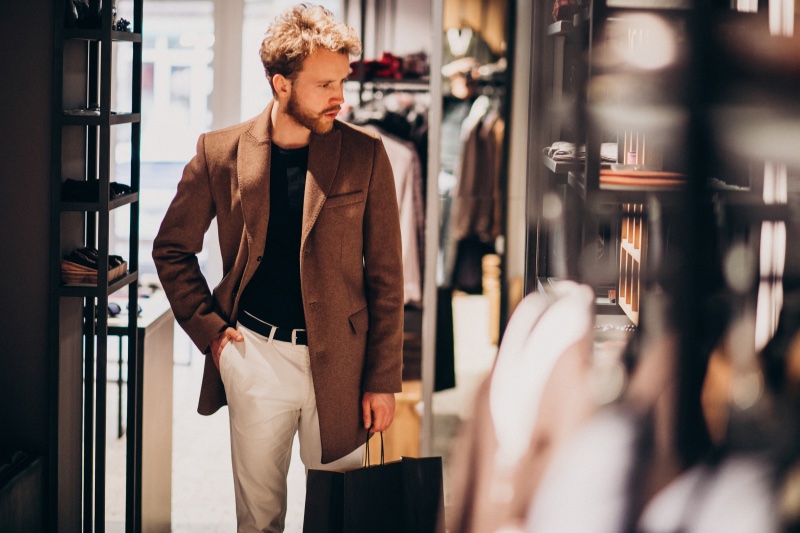
While trends come and go, timeless pieces remain constant in fashion. These pieces will never go out of style and can be worn numerous times. They include classic white shirts, well-fitted jeans, tailored suits, and good shoes.
When investing in timeless pieces, focus on quality over quantity. Choose items that are made from high-quality materials and have a good fit. Remember, it’s better to have a few excellent pieces you love and wear often rather than a closet full of mediocre items you hardly ever wear.
The Power of Tailoring
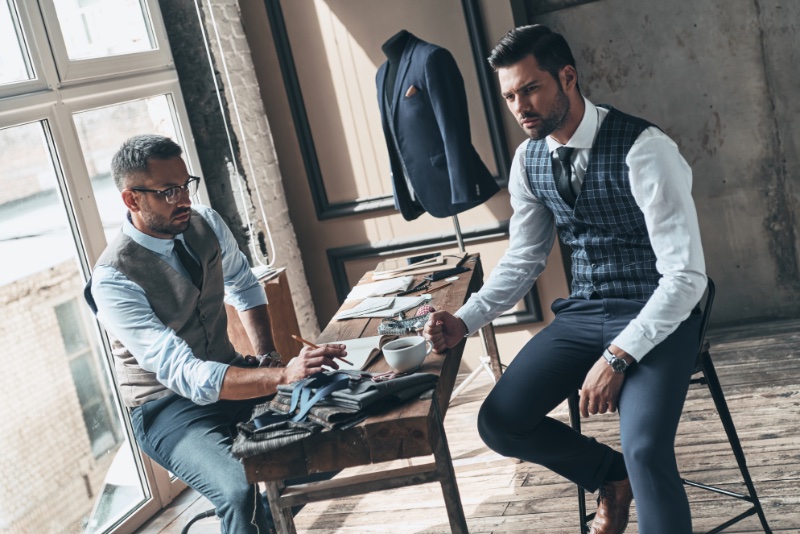
Tailoring is an indispensable tool in men’s fashion. While it might seem like an unnecessary expense or a hassle, it holds the potential to transform your wardrobe and elevate your style.
The Value of Tailoring
Tailoring ensures that your clothes fit perfectly, enhancing your physique and personal style. A well-tailored suit or shirt can boost your confidence, making you look polished and put-together. Although it might seem like a significant investment initially, the cost is often justified by the longevity and wearability of the piece.
The fit of your clothes significantly affects their overall look. Even the most expensive, high-quality pieces can look off if they don’t fit correctly. Conversely, a moderately priced, well-fitted garment can give off an air of sophistication and class.
Cost-Efficiency of Tailoring
Consider tailoring as an investment in your wardrobe. A well-fitted garment is less likely to wear out from ill-fitting tension and can stay in your rotation much longer, saving you money in the long run. Furthermore, tailoring can help update or repurpose older items in your wardrobe, reducing the need to buy new clothes frequently and promoting a more sustainable approach to fashion.
Understanding Your Preferred Brands

The brands you choose to wear can significantly influence your style. Do some research to identify brands that align with your style, fit preferences, and budget. Some brands cater to a classic, sophisticated style, while others focus on trendy, avant-garde designs.
Try different brands to find the ones that fit you best and make you feel good. Once you’ve identified your favorite brands, watch for their new collections, sales, and special offers.
The Denim Dilemma
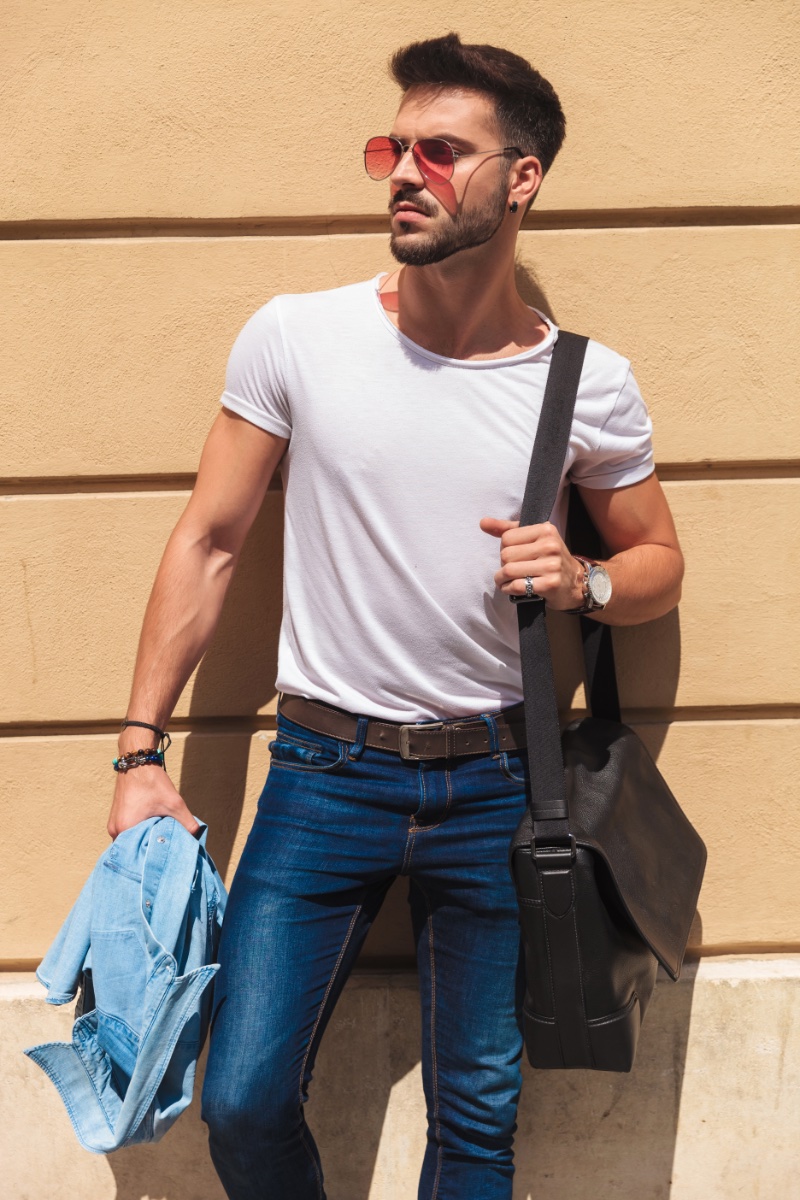
At least one pair of well-fitted jeans is essential in every man’s wardrobe. These versatile staples can anchor a wide range of outfits. However, several considerations should be made when selecting the perfect pair.
Focusing on the Fit
The fit of your jeans should be both comfortable and flattering. Choosing the one that suits your body shape and personal style is essential. Types of jeans range from skinny to slim, regular to relaxed, and loose to tight. The right fit can elevate your look, while an ill-fitted pair of jeans can compromise your comfort and style.
Choosing the Right Wash
The color and wash of your jeans can significantly impact their versatility. Dark wash jeans are often more formal and versatile, lending to casual and semi-formal looks. On the other hand, lighter washes typically project a more relaxed, casual vibe, making them ideal for laid-back outfits.
Investing in Quality
When it comes to jeans, quality should never be compromised. Look for jeans made from high-quality, durable denim. Although they might cost more upfront, they’ll last longer and look better with wear. High-quality denim retains shape and color, ensuring your jeans remain a reliable wardrobe staple for years.
Mastering the Art of Layering
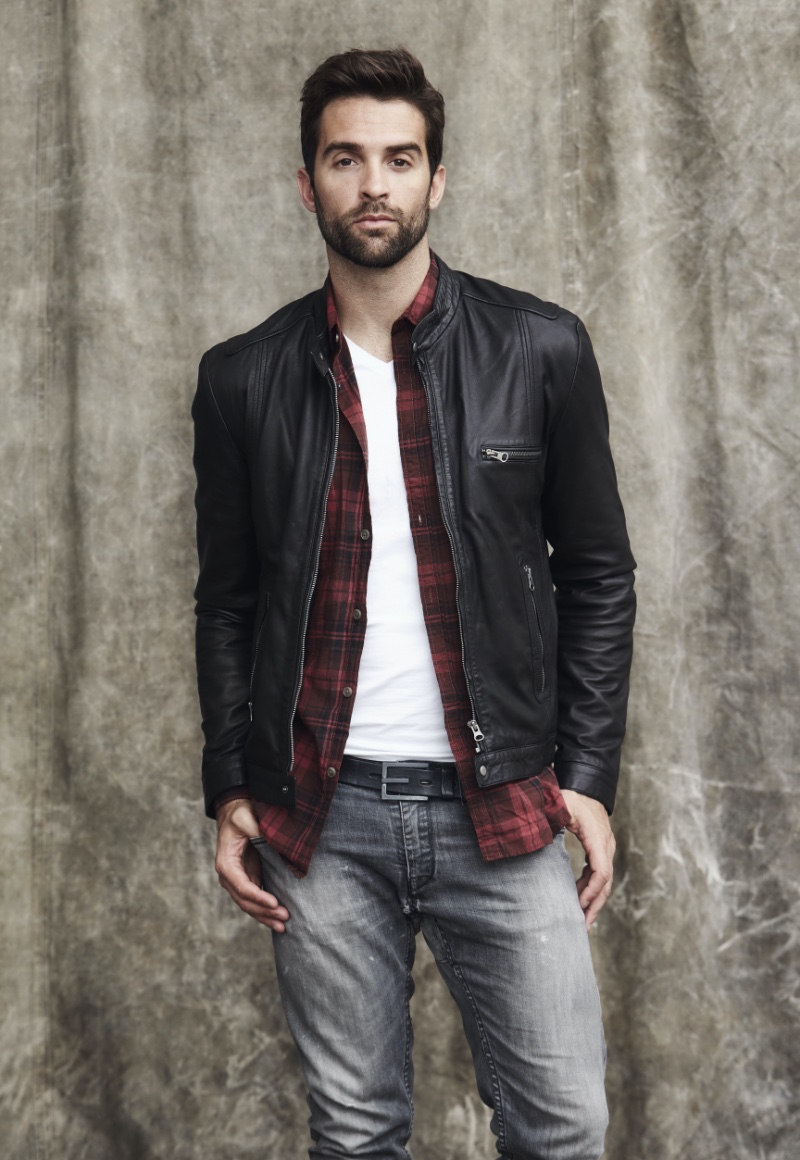
Layering is a great way to add depth and dimension to your outfits. It allows you to play with different textures, colors, and styles and is practical for changing weather conditions.
Start with a base layer like a t-shirt or shirt, add a middle layer like a sweater or vest, and finish with an outer layer like a jacket or coat. Remember to balance the weight and thickness of your layers to avoid looking bulky.
The Importance of a Well-Tailored Suit

A well-tailored suit is a timeless must-have in every man’s wardrobe. It speaks volumes of class and sophistication. Nothing can elevate your look quite as effectively as a suit that fits perfectly.
However, it’s important to note that an ill-fitting suit can do more harm than good, undermining your appearance rather than enhancing it.
Focusing on the Fit
When buying a suit, focus on the fit. It is crucial that the shoulders of your suit line up perfectly with your own and that the chest and waist are snug but comfortable. The jacket and trouser lengths should be just right—not too long and not too short, ideally with the trousers hitting right above your shoe.
If you’re buying an off-the-rack suit, don’t hesitate to get it tailored for a perfect fit.
Choosing the Right Fabric
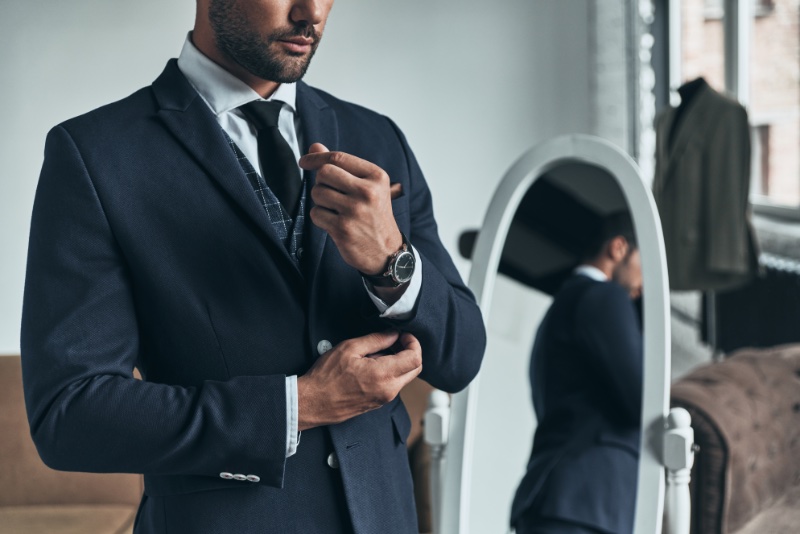
Beyond the fit, fabric quality is another crucial aspect to consider. Opt for high-quality materials that are durable and comfortable. Wool, for instance, is a popular choice for suits due to its versatility, breathability, and refined appearance.
Deciding on a Color
Starting with classic shades like navy, grey, or black is a good idea for color. These colors are timeless and versatile, allowing you to adapt to almost any situation.
Paying Attention to Details
Finally, don’t overlook the details. The lapels, the buttons, the vents—every element contributes to the overall look of the suit. Attention to these aspects ensures your suit fits perfectly and projects your intended polished and sophisticated image.
Embracing Colors & Patterns
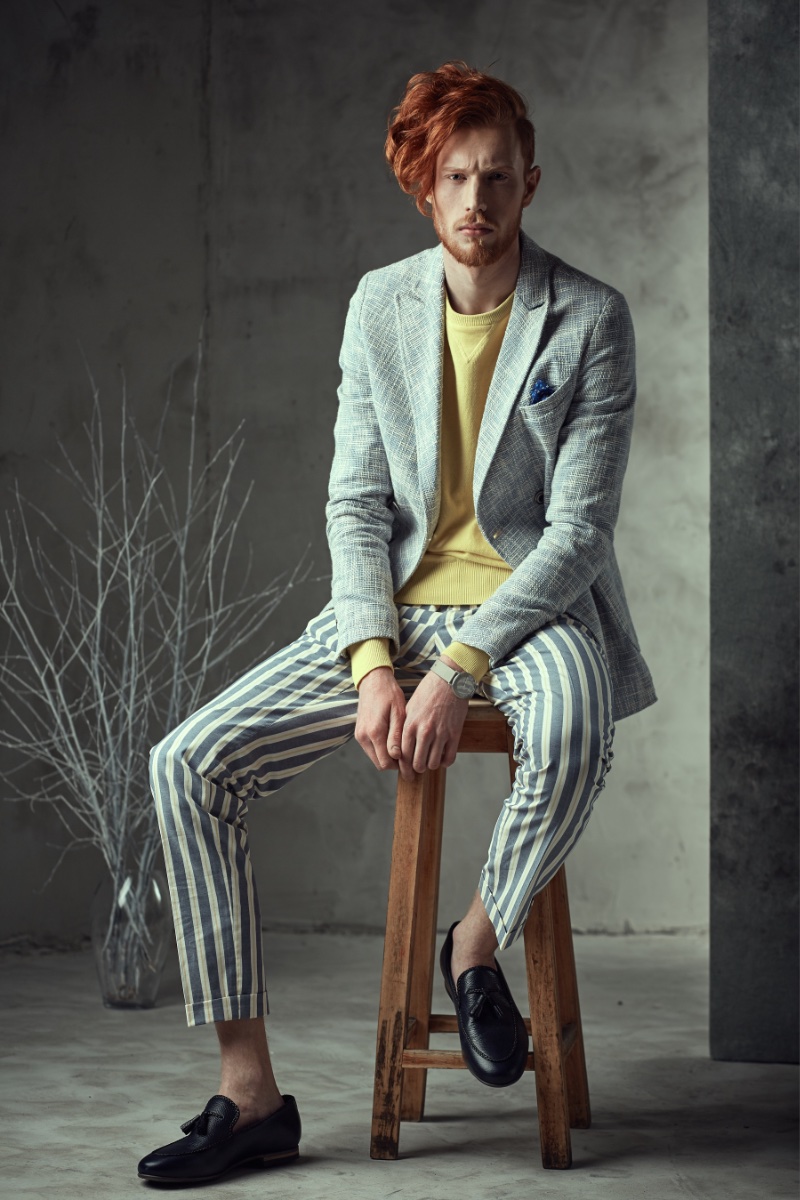
While neutral colors like black, white, and navy offer versatility and ease of mixing and matching, they often risk your wardrobe becoming monotonous. Therefore, adding color and pattern to your wardrobe can make your outfits more exciting, engaging, and stylish.
Starting Small
Starting small is advisable if you’re not accustomed to wearing many colors or patterns. Experiment with different colors and patterns to find the ones that suit you best. A colorful tie or a patterned pocket square can significantly impact your outfit, giving it a pop of personality without overwhelming it.
Understanding Complementary Colors
A knowledge of color theory can be beneficial when incorporating more color into your wardrobe. Learn how colors can complement each other, which will help you mix and match colors more effectively. Remember, less is often more regarding color and pattern—a subtle touch can make a stronger statement.
Considering Seasonal Colors
An excellent way to start incorporating color into your wardrobe is by considering seasonal colors. Different colors often correspond to different seasons.
Lighter shades are popular in spring and summer, giving a fresh and soft feel, while darker, richer hues are typically seen in fall and winter, providing a warm and cozy vibe. Understanding these seasonal variations can make your outfit choices more dynamic and adaptable.
Accessorizing Wisely
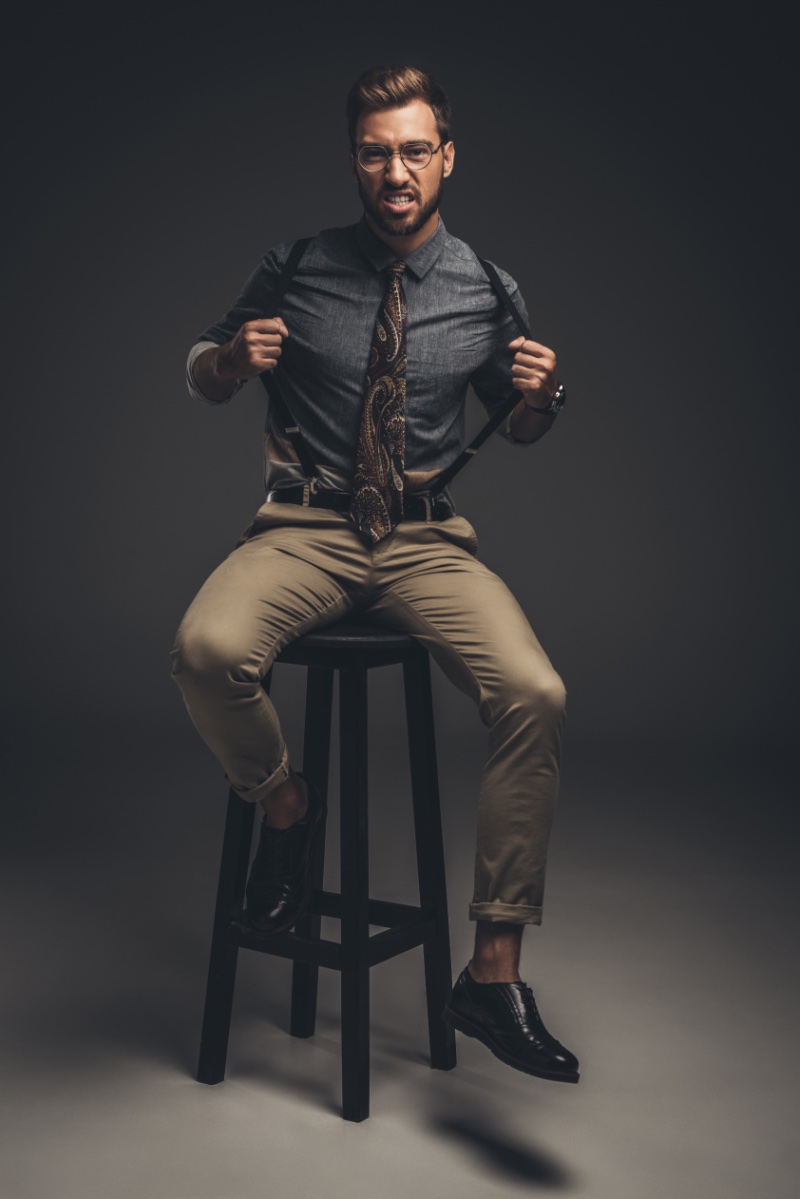
Accessories are the finishing touches that can pull an outfit together. They can add a touch of personality and make your outfit more interesting. Whether it’s a stylish pair of sunglasses, a leather belt, a silk tie, or a statement watch, choose accessories that complement your outfit and reflect your style.
But remember, less is more when it comes to accessories—having one or two standout pieces is better than overloading your outfit with too many.
Amplify Your Style with Eyewear
Eyewear extends beyond functionality, playing a pivotal role in men’s fashion. Glasses enhance your look, adding a distinctive touch. When choosing eyewear, consider your face shape, skin tone, and personal style.
Your frames should balance your facial features, and their color should harmonize with your skin tone. Classic frames are great for a traditional look, while unique shapes or colors suit a bolder style.
Furthermore, investing in designer frames can be a practical fashion choice, offering a stylish transformation and reinforcing your style.
Choosing the Right Watch
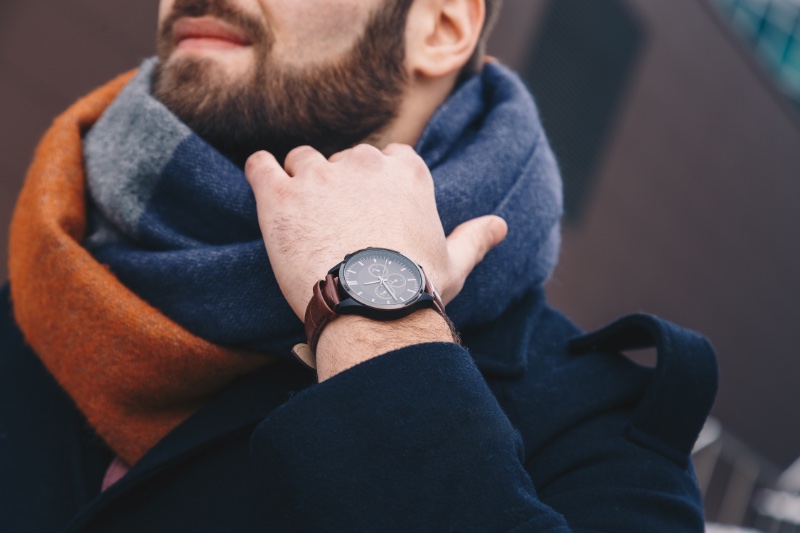
A timepiece extends beyond merely informing you of the hour—it is a fashion statement that can significantly enhance your appearance. You should evaluate a watch’s aesthetics, features, and robustness. Select a timepiece that aligns with your lifestyle and individual taste.
Consider a traditional analog timepiece with a leather or metallic band for a versatile and enduring style. On the other hand, a modern smartwatch can offer advanced functionality and a contemporary aesthetic.
Maintaining Your Wardrobe
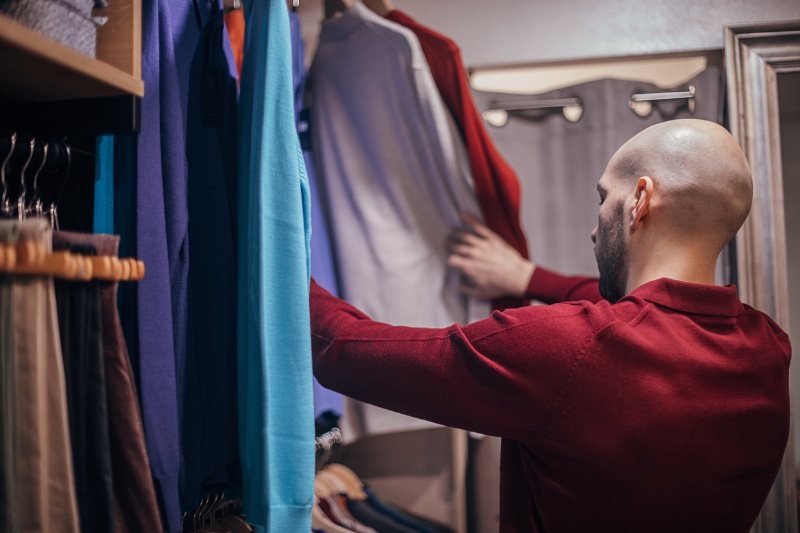
Taking good care of your clothes can extend their lifespan and keep them looking their best. However, this requires attention to washing, storage, and repairs.
The Importance of Proper Washing
Always read the care labels on your clothes. These labels provide specific instructions regarding the ideal washing conditions for each garment. Some items may require hand washing, dry cleaning, or other specific requirements to maintain shape and color. Regular adherence to these instructions can significantly extend the life of your clothes.
Ensuring Correct Storage
Proper storage is critical to maintaining your clothes’ shape and preventing damage. Use hangers for shirts and jackets to keep them wrinkle-free. Fold heavy sweaters to prevent them from stretching out. Keep shoes on racks to maintain shape and prevent unnecessary wear and tear.
Keeping Up with Repairs
Regularly inspect your clothes for any signs of damage. Minor issues like loose buttons or small tears can usually be fixed at home and can prevent further damage. For more significant damage, professional repairs might be necessary. Keeping up with repairs ensures your clothes remain in excellent condition, ready to impress at any moment.
Keeping Your Shoes in Top Condition
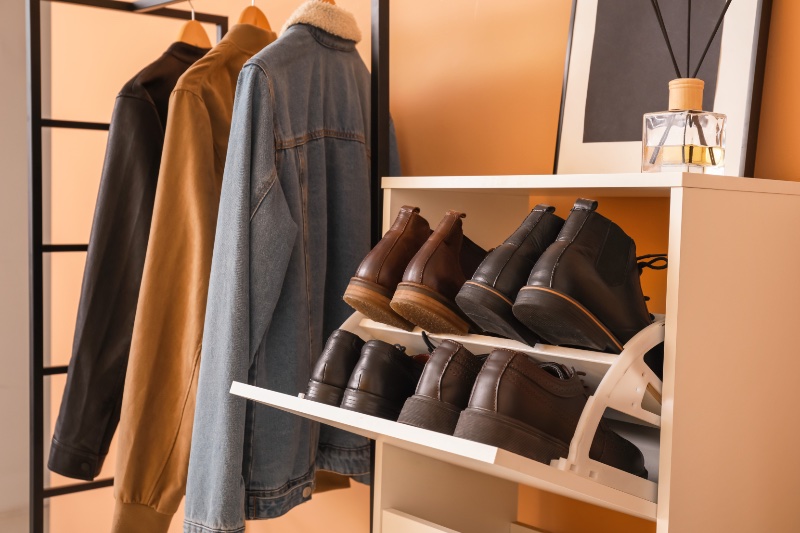
Your shoes are an essential part of your outfit. They can make or break your look, so keeping them in top condition is vital. Regularly clean and polish your shoes to keep them looking their best.
If your shoes are leather, condition them to prevent cracking and drying. And if they’re starting to wear out, consider getting them repaired instead of replacing them.
The Power of a Good Outfit Rotation
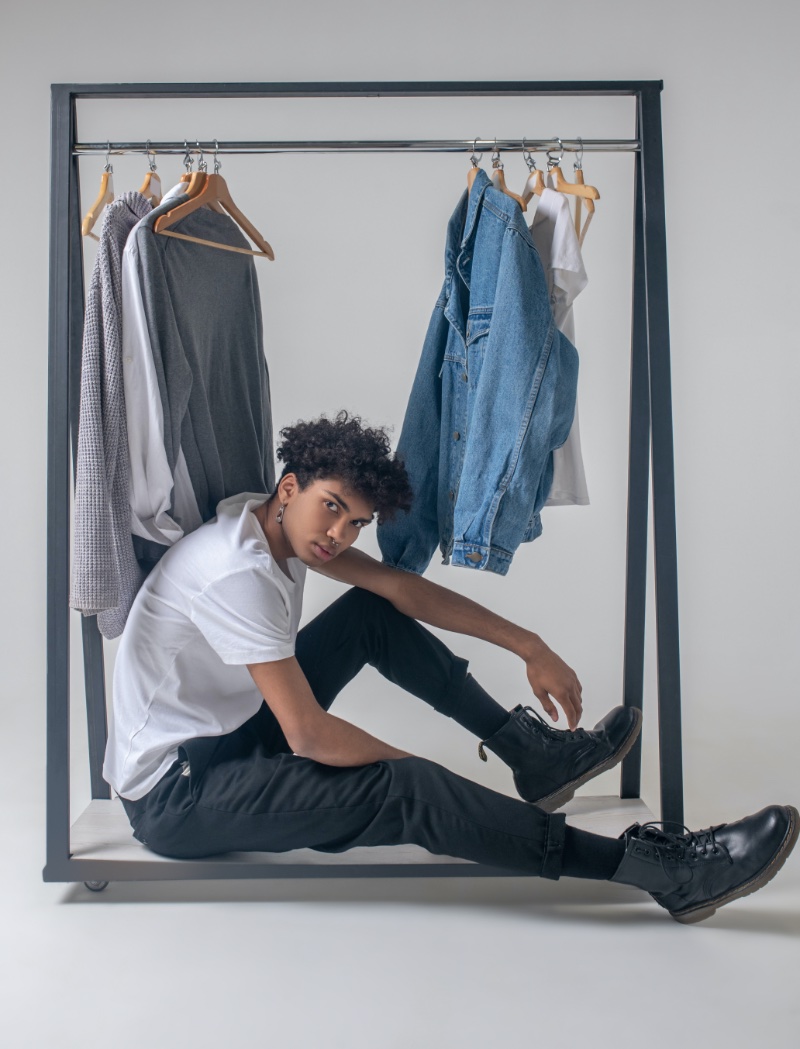
Having a good rotation of outfits can keep your style fresh and varied. It ensures you always have something stylish to wear without feeling like you’re repeating the same look too often.
Starting with the Basics
Ensure you have enough essential pieces to form the backbone of your wardrobe. These items can mix and match with almost anything, providing a versatile foundation for your outfits. Such elements typically include well-fitted jeans, classic white shirts, a tailored blazer, and a pair of versatile shoes.
Adding Variety to Your Wardrobe
Once you’ve covered your basics, add variety with different colors, patterns, and unique pieces. This is where you can let your personal style shine. By adding individual elements, textures, and patterns, you can create distinctive looks that showcase your personality and fashion sense.
Planning for Success
Plan your outfits ahead of time, especially for important events or busy weeks. This strategy saves you time and stress in the morning and ensures you put thoughtful effort into your attire.
By planning, you can coordinate your outfits to suit your schedule, ensuring you always look your best for any occasion.
Practicing Good Grooming
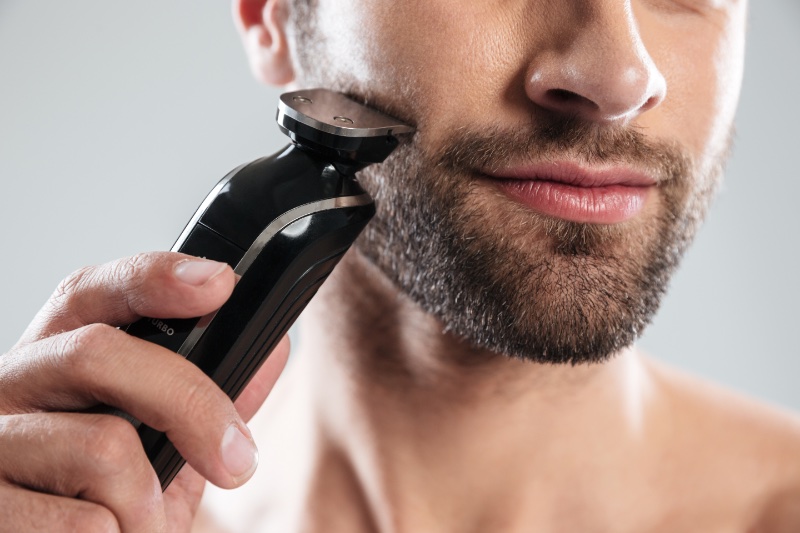
Dressing well goes beyond clothes. Good grooming habits can enhance your appearance and make you look more polished. This includes maintaining a clean and stylish haircut, keeping your facial hair well-groomed, taking care of your skin, and maintaining good oral hygiene. Remember, looking good isn’t just about looking stylish—it’s also about feeling good and confident in your skin.
The Impact of Age on Style
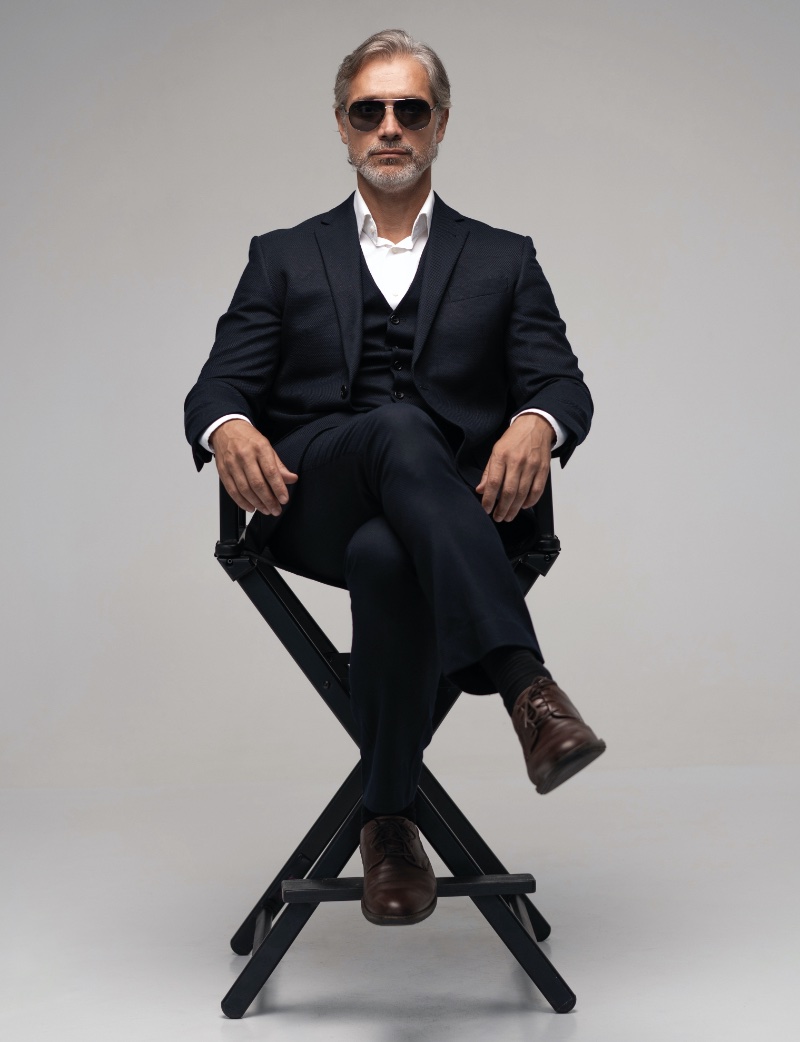
As you age, your style inevitably evolves. It is crucial to acknowledge this transformation and adapt your wardrobe to reflect your changing preferences and lifestyle.
Style Evolution
While personal style is inherently subjective and individual, age can influence what’s appropriate or flattering. This isn’t to say that you must follow strict fashion rules as you age, but it’s essential to dress in a way that feels authentic to you and respects your comfort and body changes.
For instance, your clothing choice in your twenties might be about making bold fashion statements and experimenting. However, in your thirties and beyond, you might gravitate towards more classic, timeless pieces that reflect maturity and sophistication.
Adapting to Change
It’s perfectly acceptable to evolve your style as you age, embracing the changes rather than resisting them. Remember, confidence is the key to pulling off any outfit, and wearing clothes that reflect your current self can boost this confidence.
The goal is to refine your style over time, choose quality over quantity, and build a flexible, functional wardrobe that is representative of who you are at every stage of life. As discussed earlier, tailoring can be a great tool to aid in this evolution, ensuring your clothes continue to fit and flatter you as you age.
How to Dress Better

Mastering the art of how to dress better is less about extravagance and more about understanding your style and comfort. Key to this is making wise investments in versatile pieces, familiarizing yourself with brands that resonate with your taste, and learning techniques to enhance your overall look, such as layering.
Good grooming, maintaining a well-curated and varied wardrobe, and keeping footwear in top condition are equally important. Remember to highlight your best features and evolve your style over time. Embrace this journey as an enlightening and enjoyable form of self-expression. Don’t fear making mistakes—they are learning opportunities. Use fashion as a powerful medium to reflect your persona.




